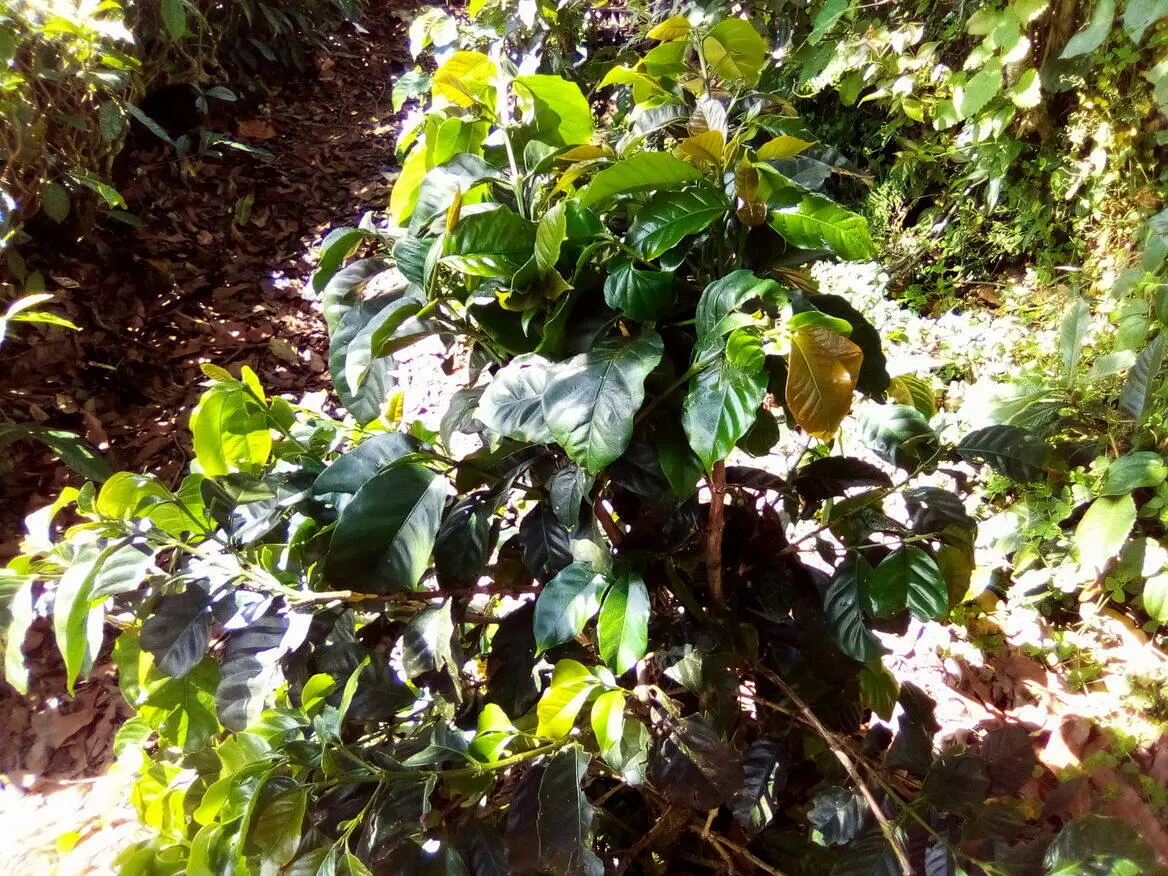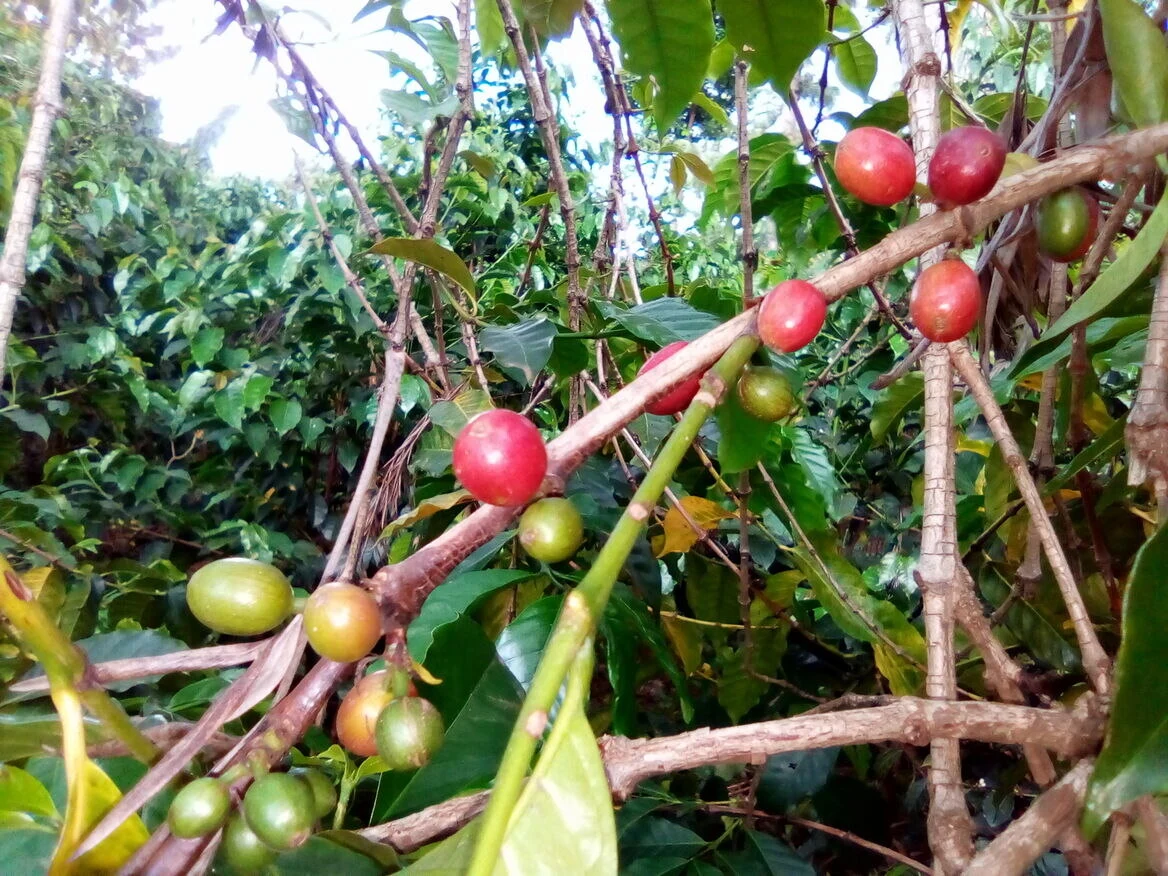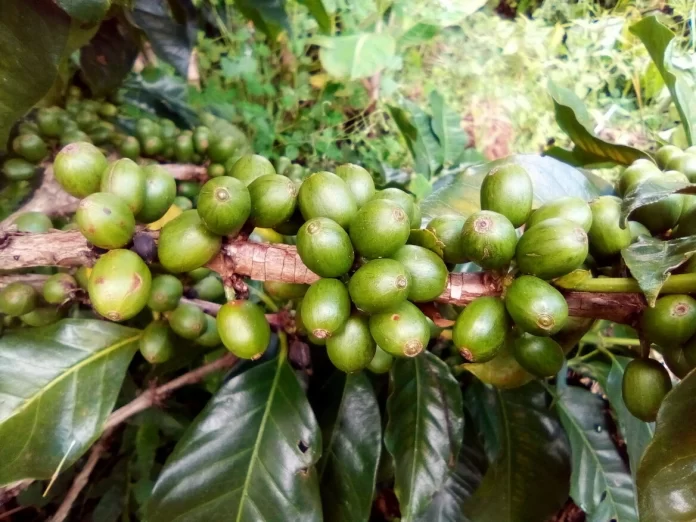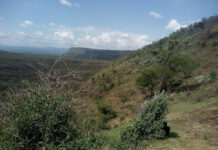By Gitonga Brian, DevReporter, Meru County

Key Highlights
- Red cherry coffee variety now sells for up to Ksh. 72.95 per a kilo.
- Ruiru 11 and Batian are the top coffee varieties in Meru.
- Payment delays is a big issue affecting coffee farmers.
Data from the Ministry of Agriculture and Livestock Development shows that 800,000 farmers grow coffee in Kenya. Data Further indicates that Kenya’s coffee production has stagnated since 2010 because of a number of factors.
grow coffee in Kenya. Data Further indicates that Kenya’s coffee production has stagnated since 2010 because of a number of factors.
State of Coffee Farming
Kirimi David who is from Abogeta West Ward in Imenti South Constituency, has been farming coffee for 20 years. He compares past and present coffee farming, expressing dissatisfaction with current situation.
“Coffee farming used to be highly profitable, supporting education, and even the prominent buildings in town belonged to coffee farmers. Deputy President Rigathi Gachagua is trying to revive the industry, but cartels are making things hard, leading to poor rates for farmers,” says Kirimi.
Mburugu M’Inoti, 79, from Mutharene village, Imenti South Constituency, who has been farming coffee for 60 years, agrees with Kirimi that it was from coffee earnings that most people in the area bought land, educated children, and built houses, adding that all his assets came from coffee farming.
David Mawira, an Ithimbari resident also in Imenti South Constituency, believes in the revival of coffee farming. He notes that the government’s revival efforts have led to payment for cherries rising from Ksh. 30 to Ksh. 65 per a kilo.
Ruiru 11 and Batian varieties are the common ones in Meru for their higher yield and disease resistance compared to SL 34, which is vulnerable to coffee leaf rust.

Diminishing Productivity
Doreen Makena Mugambi, a factory manager at Togua Factory, worries about low coffee yields from farmers in areas like Ndagene, Mutharene, Kibari, Mugene, and Gituntune.
Since January 2024, only 17,635 kilograms of coffee have been collected, much less than expected. This is due to neglecting of farms.
Pricing
payments in Imenti South. He notes the recent payment rates for farmers under the Society.
“We have five factories: Togua, Ng’irine, Nyanya, Kothine, and Kiambene. The recent prices for red cherry in these factories were Ksh. 65.15, 72.95, 67.65, 42.85, and 57.85 respectively. Coffee payment depends on three categories: P1 for red cherry, P2, and P3 for dried coffee (Mboni).”

Top Challenges
Farmers in Meru County face numerous challenges. John Kabere says he hesitates to expand his coffee farm as a result.
He lists these challenges as delays in payment, poor payment rates, and the role of brokers. All these, according to him, make coffee farming difficult.
County Government’s Support
Phyllis Mutungi, the Meru County’s Crop Development Officer, shares how the county government supports farmers in line with Vision 2030 and the Sustainable Development Goals by implementing Article 10(2b) of the Constitution.
“We generally support farmers through training sessions, emphasising the need for inclusion of various gender clusters. This approach ensures equal participation from all stakeholders.”
Although government efforts are aimed at boosting the coffee sector yields and improving payment rates, farmers still face long payment delays, leading to them being demoralised, and therefore reduced productivity.






